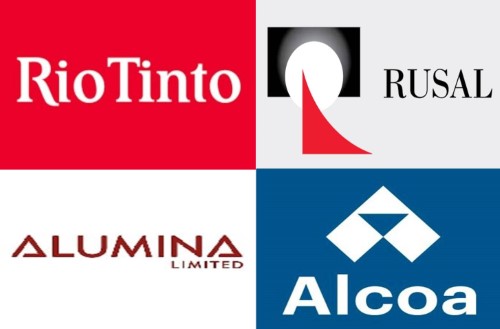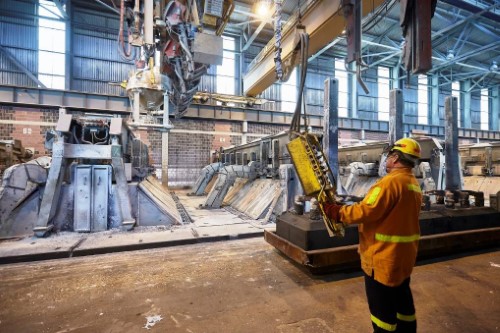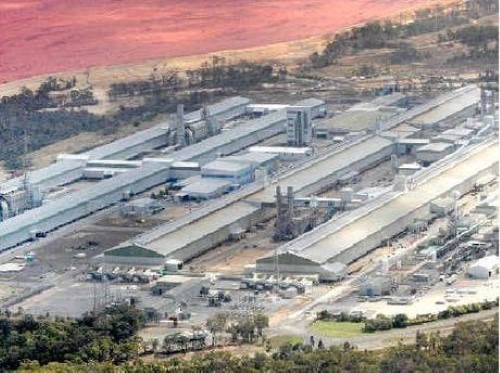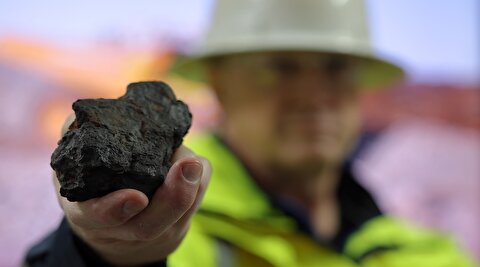
COVID-19 lockdown: Australia’s loss-making aluminium smelters appeal for exemption


A scruple of industries, including police, resources and healthcare workers have been told to keep working through the epidemic because they are deemed "essential" to the community or the economy.
Rio Tinto, Alcoa, Rusal and Alumina Ltd., the constituents of the Aluminium council has asked to join the ranks of "essential" industries and argued for their entire supply chain to also win an exemption
The council in a joint statement with the Australian Workers Union said:'' Our sites rely on these small to medium-sized businesses, who supply specialist skills, products and services for the continued safe operation of our facilities. The temporary closure in any part of this supply chain could result in chemical instability in alumina refineries or the freezing of an aluminium smelter, risking permanent closure of these operations.”
''The industry, if turned off, cannot simply be turned back on. The destruction of capital and jobs would be devastating for Australia’s regional economy and communities.
''The aluminium industry must be exempt from any shutdown measures.''
In 2019, Rio Tinto’s Australasian smelters and refineries collectively lost $US137 million, and they appear unlikely to do better this year given aluminium prices have dropped by more than 14% since 27th January’20.
Alcoa and Alumina Limited's Portland smelter lost $US36.4 million before interest and tax in 2019 and has lost a total of $US136.9 million over the past three years, despite receiving more than $200 million in government support subsidies.

The biggest problem of the Australian smelters is the high electricity prices. All the organisations had already reached the governments over the past six months about funding support to ensure their survival.
The Council said smelters were ''essential'' to the National Electricity Market because of their ability to switch off at times of high power demand.
''Aluminium smelters also played a critical role in the stability of the electricity grid, at periods of both high and low electricity demand. This is crucial in the stable ongoing operation of the electricity market and helps minimise the risk of blackouts at this time of crisis,'' said the council in the statement.
The communication towards the staff to continue their work through the lockdowns because they are economically ''essential'' has been challenging for the resources industry, where health and safety are regularly said to be the top priority.
The Aluminium Council and the AWU said they believed the health of workers would not be compromised by working through the COVID-19 lockdowns.

''Health and safety are always the number one priority of both employers and unions, and it has never been more important than in these unprecedented times. Extensive additional health and measures are in place across the operations,'' they said in the joint statement.
''Our sites already use protective equipment such as respirators, gloves and face protection, in their day to day work. All sites have introduced additional measures to increase physical distancing, split shifts and maintain high hygiene standards, to mitigate the risk of COVID 19 infections to employees.''


Gold price edges up as market awaits Fed minutes, Powell speech

Glencore trader who led ill-fated battery recycling push to exit

Emirates Global Aluminium unit to exit Guinea after mine seized

UBS lifts 2026 gold forecasts on US macro risks

Iron ore price dips on China blast furnace cuts, US trade restrictions

Roshel, Swebor partner to produce ballistic-grade steel in Canada

EverMetal launches US-based critical metals recycling platform

US hikes steel, aluminum tariffs on imported wind turbines, cranes, railcars

Afghanistan says China seeks its participation in Belt and Road Initiative

First Quantum drops plan to sell stakes in Zambia copper mines

Ivanhoe advances Kamoa dewatering plan, plans forecasts

Texas factory gives Chinese copper firm an edge in tariff war

Pan American locks in $2.1B takeover of MAG Silver

Iron ore prices hit one-week high after fatal incident halts Rio Tinto’s Simandou project

US adds copper, potash, silicon in critical minerals list shake-up

Barrick’s Reko Diq in line for $410M ADB backing

Gold price gains 1% as Powell gives dovish signal

Electra converts debt, launches $30M raise to jumpstart stalled cobalt refinery

Gold boom drives rising costs for Aussie producers

First Quantum drops plan to sell stakes in Zambia copper mines

Ivanhoe advances Kamoa dewatering plan, plans forecasts

Texas factory gives Chinese copper firm an edge in tariff war

Pan American locks in $2.1B takeover of MAG Silver

Iron ore prices hit one-week high after fatal incident halts Rio Tinto’s Simandou project

US adds copper, potash, silicon in critical minerals list shake-up

Barrick’s Reko Diq in line for $410M ADB backing

Gold price gains 1% as Powell gives dovish signal

Electra converts debt, launches $30M raise to jumpstart stalled cobalt refinery
















